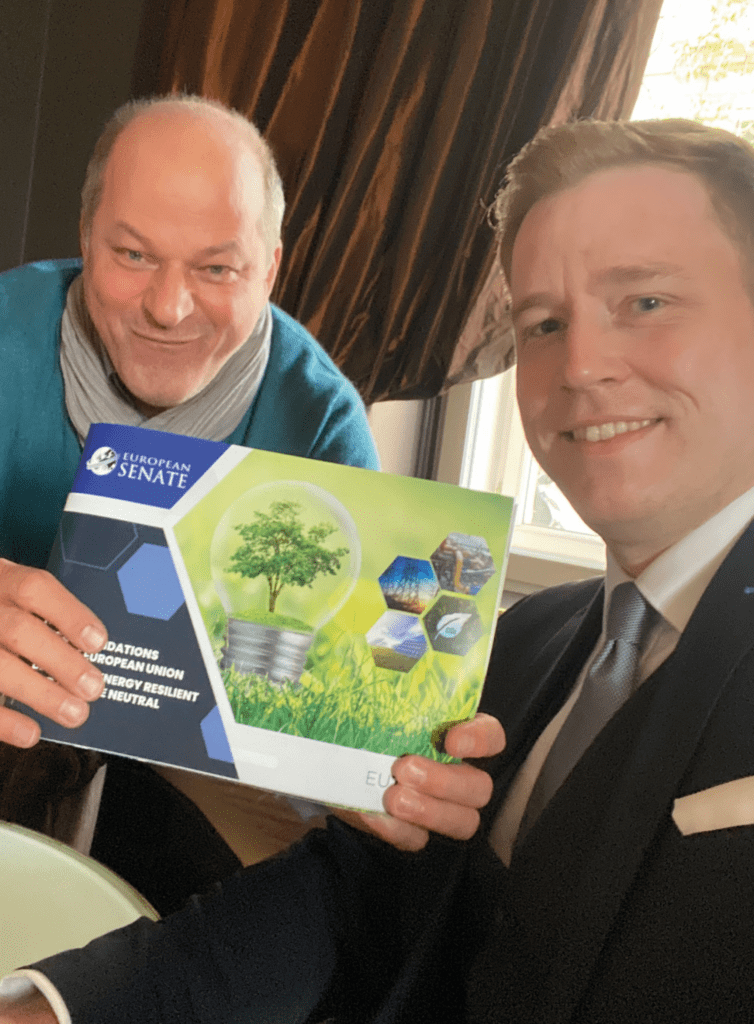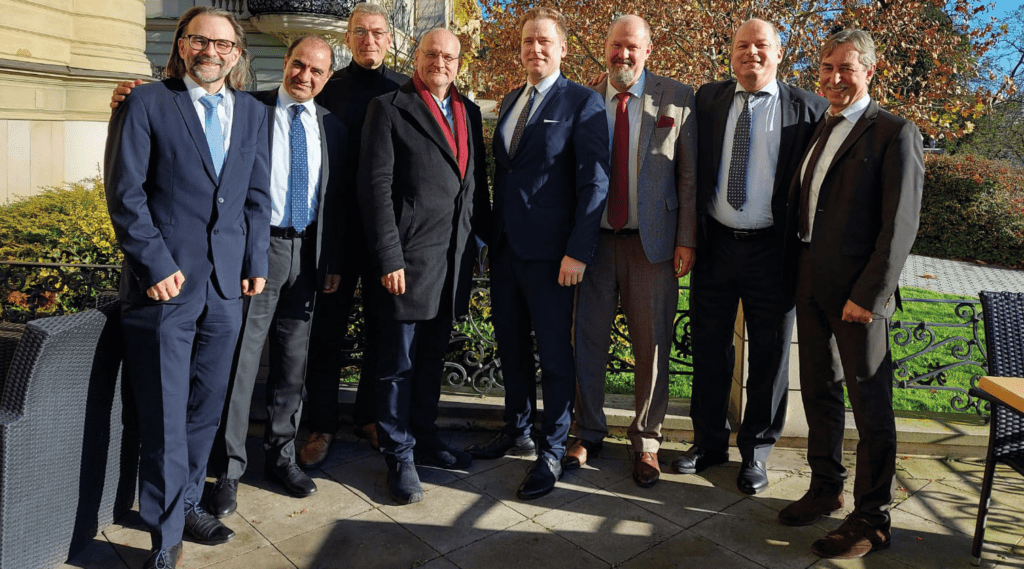White papers and position papers
The European Senate is not only a high-calibre network of CEOs and board members of large international companies, but also supports political and economic decision-makers with impulses and proposals for solutions in the form of parliamentary discussions and position papers.
In doing so, it works very closely with the alliances (commissions) of the EU Tech Chamber (EUTECH). Currently, 15 internationally staffed alliances represent the know-how of the organisation. The aim of this commission work, in addition to maintaining the international network, is to produce white papers. They are the result of the question of which technologies we will have to deal with in the future and how they can solve the problems of our time.
But they also provide information on how to intelligently combine future technologies and thus increase their efficiency. After all, this is exactly the purpose of the EU Tech Chamber and the European Senate: to find new technologies all over the world and combine them in order to generate new innovative approaches to solving the future issues of our time.
White papers are therefore a description of how and why technologies work. However, they are usually not entirely suitable for helping decision-makers from business, science, and politics to understand how the implementation of new innovations fits into the political agenda. Politics does not function like a research laboratory and goes far beyond technicalities.
In addition to a basic understanding of technology, it is also about international interrelationships. This means the social coexistence of people. Politics must regulate this coexistence, and therefore a wide variety of influencing forces must be taken into account beyond day-to-day politics. There are over 190 states on our planet and all of them have their own governmental apparatus and their own views of our world.
For this reason, the European Senate expands EUTECH’s white papers to include as many spheres of influence as possible. This results in position papers which the Senate can discuss at eye level with decision-makers. This is how the actual impulses are created, which should help as many of these states as possible in their responsibility.

The global approach is important here. As an international and intercultural organisation, it is not enough to only look at partial aspects or individual sectors. It is about putting them into a global context and not forgetting any groupings if possible. A mammoth task for any NGO, but the Senate is very well supported by its members and partners and thus has a great deal of international expertise and political knowledge.
For example, while in Europe wonderful new technologies are being developed for the passenger experience as the future of modern mobility, and some of them have already been completed, people on other continents would be happy to drive around in cars that at least have an airbag. It is undisputed that the technology from a new Passenger Experience will also help these regions.
In our opinion, however, it is extremely important to take these aspects into account when assessing these innovations. This is the origin of our mindset to do something good for the common good. It is not for nothing that our motto is “Technology obliges”.
However, the common good does not stop at the national border but applies worldwide. However, as our Commission work unites many cultures and languages through our infrastructure, the knowledge within EUTECH and the European Senate is growing incredibly rapidly. Only by taking into account as many people as possible and their living conditions can we really make a sustainable difference for our planet.

Prague delegation trip
In November 2022, a delegation of the European Senate travelled to Prague to engage in a fruitful dialogue with decision-makers from politics and business. The title of the position paper presented there was “High-Level recommendations for the European Union becoming energy resilient and climate neutral”.
This position paper is about the application of new technologies in relation to a sensible mix of different energy sources. The bottom line is that we already have well-developed technologies and, therefore, do not lack the know-how to achieve the energy transition. They are even described in the paper. The challenges are to be found in the handling of politics. This is exactly where we would like to support impulses. The position paper is a summary of over 60 pages of white paper and is supplemented with specific recommendations for policymakers.
During the delegation trip, we had the opportunity to meet several important dialogue partners. Among others, we spoke with Andreas Rau, the CEO of NET4GAS in Prague. NET4GAS is the largest gas transit company in the Czech Republic and thus a hub for gas transport throughout Central and Eastern Europe. Here, the delegation gained profound insights and was thus able to usefully complement the public reporting. We also spoke with Vaclav Bartuska, the Special Representative for Energy Security and Chief Ambassador of the Czech Republic. As someone who works for the government but does not hold political office, a fruitful exchange of ideas could take place here as well. One of the most interesting points here is the fact that he has already met 14 prime ministers in his active career and is still in office. It was enriching for all delegation members to discuss with someone with such great experience.
In addition to further visits and lectures, among others at the German-Czech Chamber of Foreign Trade on Wenceslas Square, the active networking of the senators was of course in the foreground.
Conclusion of the Prague delegation trip: repeat it in any case!
We will do so. The European Senate will also organise two delegation trips in 2023. In the middle of the year, we will go to Sweden and at the end of the year, to Spain. This year’s main topics will be, besides the continuation of the energy position paper, the inevitably related future of mobility and the healthcare sector.
Of course, we will report on this on social media and in our publications.
You can find more information at https://www.senate.eu/position-papers/
I hope you enjoy reading more of our “Visions for Europe” magazine.





